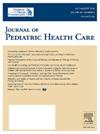儿科门诊中产后抑郁症状与健康的社会决定因素之间的关系。
IF 2.5
4区 医学
Q2 HEALTH POLICY & SERVICES
引用次数: 0
摘要
简介我们的目的是:(1)使用患者健康问卷-2(PHQ-2)和爱丁堡产后抑郁量表(EPDS)确定产后抑郁(PPD)症状的流行率;(2)分析PPD症状与健康的社会决定因素(SDoH)之间的关系:我们从 1327 个婴儿/母亲二元组中获得了 1 个月和 6 个月健康检查的数据。我们使用卡方检验(Chi-square)和 T 检验来比较 PPD 筛查组之间的社会决定因素,并使用逻辑回归来构建 PPD 预测模型:结果:PPD筛查阳性率为5%-7%,但在两个时期内均为阳性的仅占1.85%。尽管 EPDS 和 PHQ-2 存在相关性(Pearson 0.66),但 PHQ-2 却遗漏了 65% 由 EPDS 确定的患者。PPD筛查阳性与更多的SDoH问题有关:我们的研究强调了反复进行 PPD 筛查的重要性。EPDS 比 PHQ-2 发现了更多的高危母亲。多种 SDoH 与 PPD 症状有关。本文章由计算机程序翻译,如有差异,请以英文原文为准。
Association Between Postpartum Depression Symptoms and Social Determinants of Health in Outpatient Pediatric Clinic
Introduction
We aimed to (1) identify the prevalence of postpartum depression (PPD) symptoms using the Patient Health Questionnaire-2 (PHQ-2) and the Edinburgh Postnatal Depression Scale (EPDS), and (2) analyze the relationship between PPD symptoms and social determinants of health (SDoH).
Method
We obtained data from 1327 infant/mother dyads at 1 and 6-month well-child checks. We used Chi-square and T-tests to compare social determinants between PPD screening groups and logistical regression to construct predictive models for PPD.
Results
The prevalence of positive PPD screens was 5–7%, but only 1.85% screened positive at both periods. Although the EPDS and PHQ-2 were correlated (Pearson 0.66), the PHQ-2 missed 65% of those identified by the EPDS. Positive PPD screens were associated with greater SDoH concerns.
Discussion
Our study highlights the importance of repeated PPD screening. The EPDS detected more mothers at risk than the PHQ-2. Multiple SDoH were associated with PPD symptoms.
求助全文
通过发布文献求助,成功后即可免费获取论文全文。
去求助
来源期刊

Journal of Pediatric Health Care
NURSING-PEDIATRICS
CiteScore
3.40
自引率
10.70%
发文量
140
审稿时长
24 days
期刊介绍:
The Journal of Pediatric Health Care, the official journal of the National Association of Pediatric Nurse Practitioners, provides scholarly clinical information and research regarding primary, acute and specialty health care for children of newborn age through young adulthood within a family-centered context. The Journal disseminates multidisciplinary perspectives on evidence-based practice and emerging policy, advocacy and educational issues that are of importance to all healthcare professionals caring for children and their families.
 求助内容:
求助内容: 应助结果提醒方式:
应助结果提醒方式:


